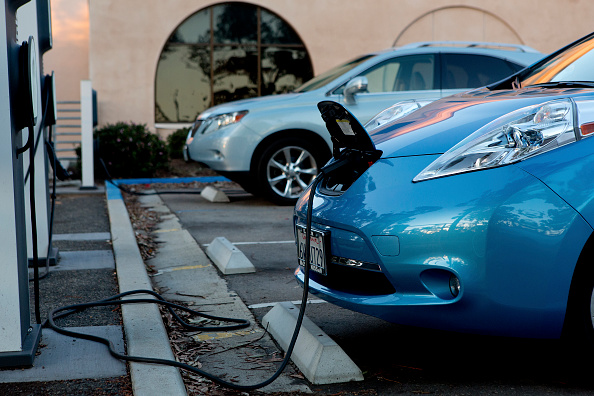Fleet Electrification Presents Opportunities for Commercial Real Estate Owners
By James Geshwiler September 13, 2022 1:00 pm
reprints
Electric vehicles (EVs) represent one of the most noteworthy market changes right now in commercial real estate. The momentum is undeniable. Driven by declining production costs, climate goals and, most recently, soaring prices at the gas pump, EVs have become increasingly popular with drivers, manufacturers and even the federal government, and they’re expected to comprise nearly a third of cars on the road by the end of the next decade.
CRE owners cannot afford to fall behind this transition, as the benefits of installing EV-charging infrastructure are substantial. Commercial and multifamily properties host cars for untold hours every day, and it is logical for employees and tenants to turn to these properties to meet their growing need for power.
In doing so, and cementing their role in the electrification of transportation, commercial property owners can boost their portfolios’ sustainability and profitability.

Supporting ESG goals
The pressure is on for CRE owners to move environmental, social and corporate governance (ESG) targets to the top of their agendas. Gartner reports that 85 percent of investors are taking ESG into account in their investments, and after years of speculation the U.S. Securities and Exchange Commission formally proposed new rules earlier this year requiring businesses, including real estate investment trusts, to report their greenhouse gas emissions. Additionally, by setting and meeting high standards for ESG performance, property owners have a competitive advantage in capital markets.
The average gas-powered passenger vehicle emits 4.6 metric tons of carbon dioxide annually, and commercial vehicles with lower fuel economy can emit even greater quantities. EV-charging infrastructure greatly increases a property’s sustainability profile by encouraging the adoption of EVs, and when integrated with other clean energy resources can have even greater ESG benefits.
Increasing NOI
By hosting EV infrastructure, property owners can also enjoy a higher net operating income (NOI) through increased rent and lower energy costs when integrated with other on-site energy assets, like solar and batteries. Property owners can monetize EV charging in a variety of ways, including owning the infrastructure and assets, and working with third-party owners who share revenue.
In addition to the installation of chargers, building owners and occupants who electrify their fleets can enjoy additional sources of savings and reliability. Electrified fleets can be managed using smart software that optimizes charging times to target the lowest cost of electricity during the day, while also maximizing the efficiency of vehicle routes. EV fleets also reduce businesses’ vulnerability to gas price volatility.
Attracting valuable tenants
With the global conversation about climate issues accelerating, clean energy amenities have become critical for tenants drawn to facilities with EV charging, rooftop solar and on-site battery storage. As a result of this demand, commercial owners who offer these amenities are likely to enjoy rising property value, helping future-proof their properties. Tenants are often willing to pay higher rents for access to these electrified facilities and are more likely to sign longer-term leases.
For building occupants, electrification not only equates to ESG performance and predictable rates, but operational reliability as well. Proper integration of EV charging, renewable power generation and energy storage can support continued operation during disturbances to the grid. The resilience of these facilities is invaluable to occupants who cannot afford momentary pauses in operation, and is another reason to pay up for buildings that can ensure consistent power.
Strategic partnerships
As EVs continue to grow popular, the opportunity to reduce emissions and costs through EV charging has never been greater. Property owners who pursue these upgrades alongside a private partner that understands their needs can avoid utility infrastructure upgrades and rate increases, optimize their EV-charging infrastructure for efficiency and emissions, and enjoy zero disruption of service and no wasted resources or revenue.
These benefits can be further amplified through the strategic integration of other clean energy assets such as solar and battery storage. With the availability of resources and partnerships to minimize the risks associated with installing EV charging and other clean energy amenities, CRE owners have no excuse to fall behind the global electrification wave. The profitability and sustainability benefits of the clean energy transition are ready for the taking.
James Geshwiler is the chief strategy and investment officer of Catalyze, a clean energy company and a national independent power producer.



